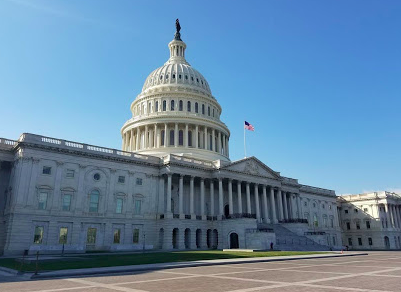
The PA Center for Coalfield Justice joined forces with the Alliance for Appalachia and traveled to Washington DC to influence lawmakers on a few coalfield issues. We spent three days, September 24th – September 26 meeting with various Senatorial and Congressional Staff from Pennsylvania, Ohio, West Virginia, Kentucky and Tennessee.
The goals of the lobbying trip revolved around three key issues. The Black Lung Trust Fund helps support Coal Miners that have been diagnosed with Black Lung and no longer have a company to help them with medical bills. This happens when the company a miner used to work for, or still continues to work for, has gone bankrupt or refuses to pay for medical help. Currently, there has been a $1.10 per ton of coal tax on underground mines charged to the coal company that directly supports the Trust Fund. This tax is slated to be cut in half at the beginning of 2019. This is a problem because it has previously run at a high deficit since the Trust Fund was established in the 1980’s. Last year alone, the fund ran at over a 1 billion dollar deficit, which ends up being a burden on taxpayers. We proposed, with the help of a GAO (Government Accountability Office) study done this year, that the tax per ton of coal actually be raised 25% (27 cents) to help make the Trust Fund solvent by the year 2050. At the very least, we advocated for the tax to be extended into 2019. Senator Manchin from West Virginia agreed to lead the charge on writing legislation to, at the least, extend the Fund into 2019.
data-animation-override>
“This was my first time lobbying lawmakers in Washington, DC. It was an exciting experience to advocate for the workers and families in my community. It was satisfying to enlighten and influence the lawmakers and their staff about the ongoing issues and struggles we face in southwestern PA. ”
The RECLAIM Bill was the second key issue focused upon during the trip. The bill prescribes general requirements for projects to reclaim abandoned mine lands and waters that are likely to create favorable conditions for the economic development of the project site or promote the general welfare through economic and community development of the area in which the project is conducted. Any such project shall be located in a community affected by a recent decline in mining. At the present, the House has not been able to bring the bill to the floor to spark a vote. We tried to convince lawmakers to pick up momentum on this and push for the bill to be brought to the House floor for a vote to move this bill into action.
The third issue focused on throughout the week was regarding Miners Pensions. Legislators from coal states have pressed for federal help to prevent what some have described as a looming national crisis: The United Mine Workers of America’s retirement and health-care funds currently support about 120,000 former miners and their families nationwide, but the account balances have rapidly declined as some coal companies shed dues-paying workers and others filed for bankruptcy protection. Without intervention, some of the funds — chiefly those associated with firms in bankruptcy — could run out of cash before spring, Congressional officials say. We asked staff members to urge their boss the importance of this issue. Again, taxpayers should not have to shoulder the burden of coal companies unsafe, unhealthy and unsustainable work practices.
